The Political Bureau of the Communist Party of China Central Committee held a meeting to analyze the current economic situation and plan economic work for the second half of the year on Monday.

Workers at a workshop of Jack Sewing Machine Co Ltd in Taizhou, East China's Zhejiang province, on March 23, 2023. [Photo/Xinhua]
Economic data
China's economy is facing new challenges which mainly arise from insufficient domestic demand, difficulties in the operation of some enterprises, risks and hidden dangers in key areas, as well as a grim and complex external environment.
The central government's judgment on the current economic situation is in line with objective reality, said Zhao Xijun, a finance professor at Renmin University of China. The country's recovery in the first quarter exceeded expectations, but the growth rate in the second quarter was slightly weaker and the degree of recovery in different areas was also somewhat unbalanced, reflecting "wave-like development and zigzag progress".
China's economic data in Q2 compared with figures in Q1 showed the country's economic growth momentum remains strong, said Jerome Haegeli, chief economist of Swiss Re Group.
China's domestic market is strong enough to maintain independence and avoid external shocks, he added.
The meeting focused on key issues in economic and social development to make a series of important arrangements and accelerate policy implementation, which is of great significance for promoting sustained economic improvement, said Li Chengjian, a researcher from the Development Research Center of the State Council.
Macro-policy regulation
Carrying out macroeconomic regulation with precision and force was called for, as was strengthening counter-cyclical regulation and making more policy options available.
Feng Xuming, an economist at the Chinese Academy of Social Sciences, said strengthening counter-cyclical regulation and policy reserves was proposed, which will drive internal economic momentum.
Strengthening of macro-policy regulation in the second half of this year will be based on the full estimation of the uncertainties and challenges economic growth may face in the third and fourth quarters, and macro-policies will be further improved, said Pang Ming, chief economist with global consultancy JLL China
Capital market
The RMB exchange rate shall be kept generally stable at an appropriate and balanced level, and efforts will be made to invigorate the capital market and boost investor confidence.
Many people in the capital market, especially the stock market, hold a wait-and-see attitude, which needs to further activate to enhance investor confidence and stabilize investor expectations, said Zhao Xijun, a finance professor at Renmin University of China.
To invigorate the capital market means the next stage of capital market reform will focus on strengthening wealth management to satisfy strong demand for residents' wealth preservation and appreciation, as well as optimizing asset allocation and accelerating the repair of residents' balance sheets to expand domestic demand, said Luo Zhiheng, chief economist at Yuekai Securities.

The third China International Consumer Products Expo welcomes visitors on April 11, 2023 in South China's Hainan province. [Photo by Zhang Wei/chinadaily.com.cn]
Consumption
Active expansion of domestic demand was encouraged, as was the fundamental role of consumption in driving economic growth.
Consumption of major items including automobiles, electronic products and household items should be boosted, and spending on services such as sports, leisure and cultural and tourist services should be encouraged, according to the meeting.
With world economic growth lacking momentum and global trade growth slowing, China should stick to the strategy of expanding domestic demand especially consumer demand to drive its development, said Chen Lifen, a researcher with the Development Research Center of the State Council.
With the expanding domestic demand policy, investment and consumption are expected to maintain stable growth in the second half of the year, and the resilience and stability of China's economic development will be further enhanced, Chen added.

Builders work on a housing project in Shanghai. [Photo/China Daily]
Real estate
Concrete efforts were called for in preventing and defusing risks in key areas, and adapting to the major changes in the relationship between supply and demand in China's real estate market.
The meeting resulted in sound judgment and released a clear signal to the real estate market, said Zou Linhua, a researcher with the National Academy of Economic Strategy under the Chinese Academy of Social Sciences.
In the future, real estate demand will mainly include new housing demand from urbanization, improvement demand and old house renewal, Zou added.
Real estate policy optimization will be promoted by cities' situations, and overall intensity is expected to increase to better meet residents' housing demands and their needs for better housing, said Chen Wenjing, director of research with the China Index Academy.
Rebuilding of villages inside megacities and activating idle assets will be important ways to increase the construction and supply of government-subsidized housing, Chen said.

Candidates look for employment opportunities at a job fair in Nanjing, Jiangsu province. [Photo by Liu Jianhua/For China Daily]
Employment
Stabilizing employment should be considered from a strategic and overall perspective, and the scale of the middle-income group should be expanded.
The importance of stabilizing employment and need for strengthened efforts in stabilizing employment policies was shown by the conclusions drawn at the meeting, said Zhang Chenggang, associate professor at Capital University of Economics and Business' School of Labor Economics.
With implementation of the planned measures, the employment situation is expected to maintain stability in the second half of the year, Zhang added.
The government will take more active measures to further strengthen the priority of employment, such as increasing support for the platform economy and the innovative development of small and medium-sized enterprises, strengthening vocational training and employment services to stabilize the economy and promote employment, said Zhu Keli, founding director of the China Institute of New Economy.

An aerial photo taken on July 5, 2023 shows cars being loaded for export at Yantai Port in East China's Shandong province. [Photo/Xinhua]
Foreign trade
More policies should be formulated and rolled out to spur private investment, while multiple measures should be taken to keep the country's foreign trade and investment stable.
A series of arrangements made at this meeting will help smooth the "double cycle" of domestic and international markets, accelerate the construction of a new development pattern, help the world participate in Chinese market development and inject new momentum into global economic growth, said Yang Guangpu, a researcher with the Development Research Center of the State Council.
Modern industrial system
Accelerated steps were urged to foster and expand strategic emerging industries and develop more mainstay industries, as well as promote the in-depth integration of the digital economy with advanced manufacturing and modern services and to advance the safe and sound development of artificial intelligence.
Further promoting the construction of a modern industrial system will help expand and consolidate the advantages of industrial development and deeply integrate digital technology with the real economy to cultivate new growth engines, said Li Gang, a researcher at the Institute of Industrial Economics under the Chinese Academy of Social Sciences.









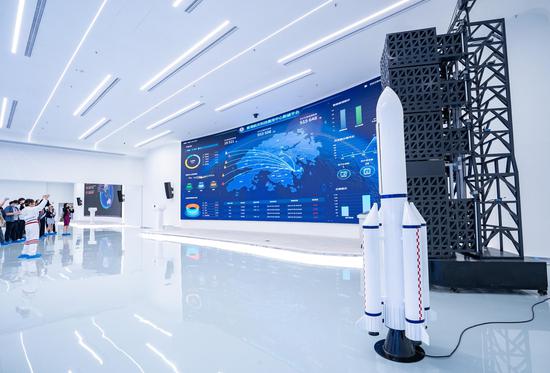
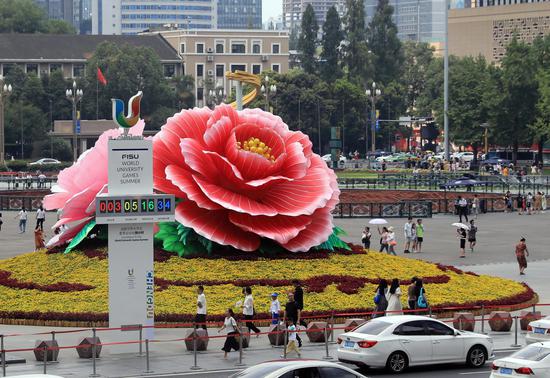
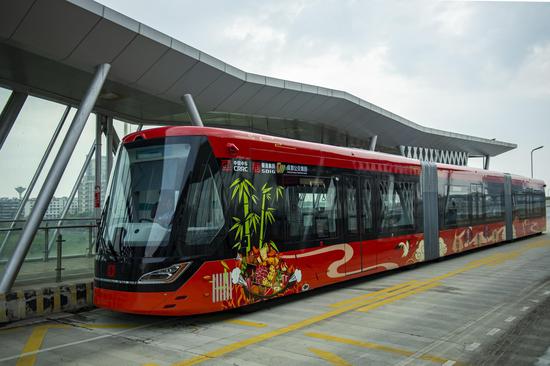
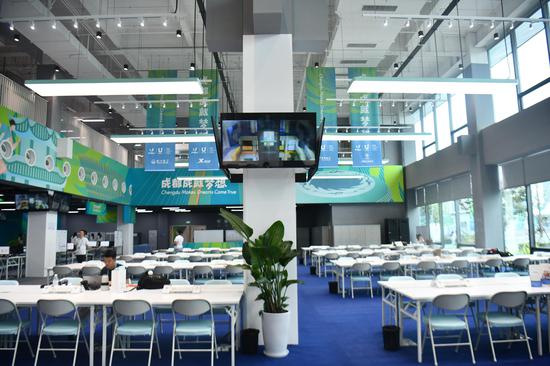






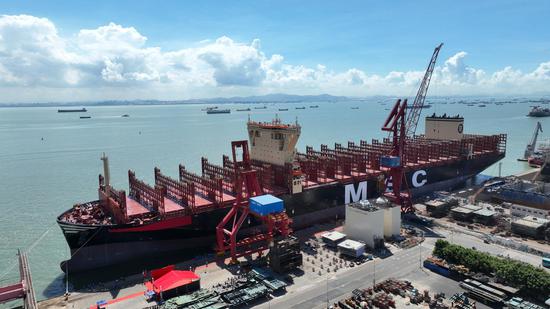

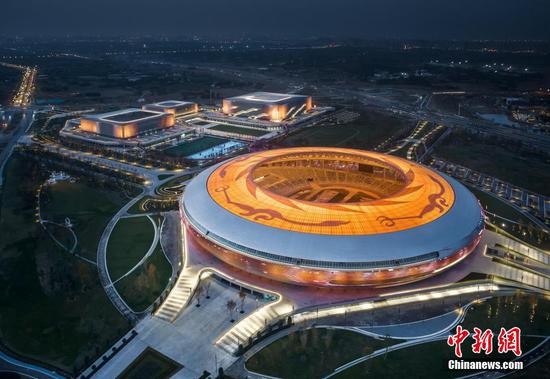

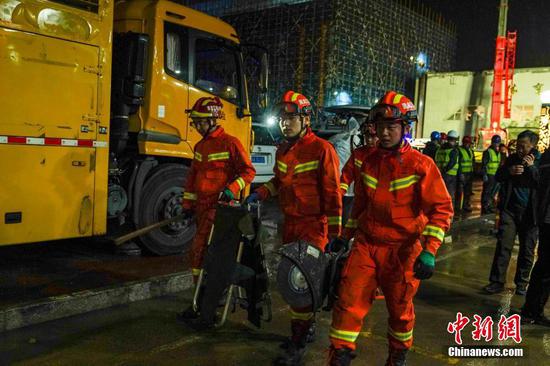

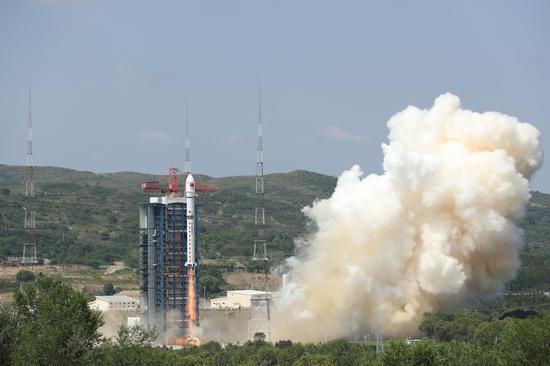




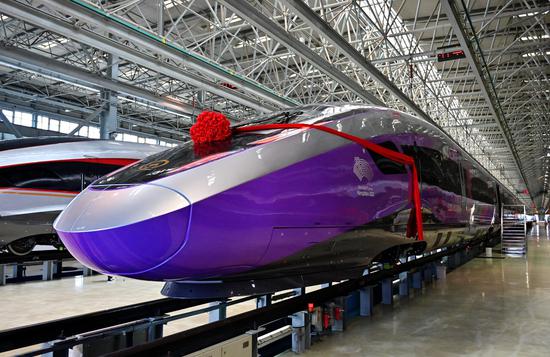


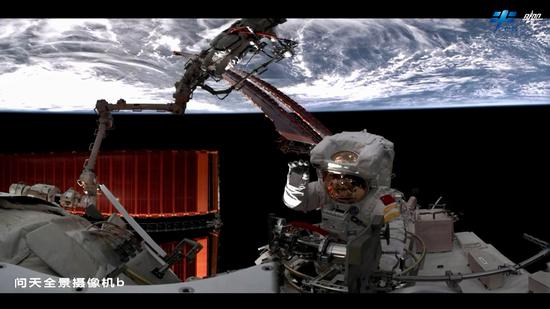





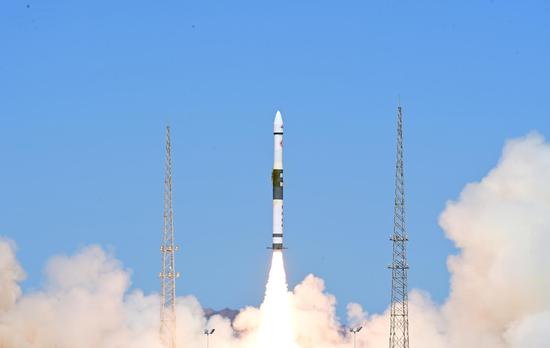
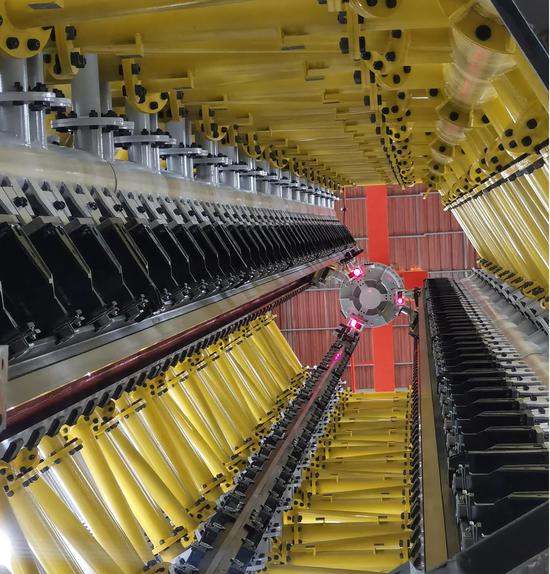









 京公网安备 11010202009201号
京公网安备 11010202009201号